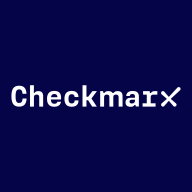

Checkmarx One and OpenText Dynamic Application Security Testing are both strong contenders in application security testing. Checkmarx One seems to have the upper hand due to its automation, early detection capabilities, and flexible licensing options that offer greater integration and cost efficiency.
Features: Checkmarx One is known for its comprehensive scanning across multiple languages, seamless integration with SCM tools, and extensive coverage across CI/CD pipelines. Users find its automation and early vulnerability detection crucial for maintaining security. OpenText Dynamic Application Security Testing, on the other hand, is praised for robust session management and API testing capabilities, though it struggles with scanning speed and handling various application types compared to Checkmarx.
Room for Improvement: Checkmarx One users desire improvements in SAST scan speed, enhanced dashboard customization, and better handling of false positives. Suggestions also include more AI-assisted fixes and transparency in the correlation engine. For OpenText, users highlight the need for better pricing models, ease of installation, expanded application support, and faster scan reporting.
Ease of Deployment and Customer Service: Checkmarx One is commended for its ease of deployment across multiple platforms, including public cloud services, with a responsive and effective customer support team. Conversely, OpenText's deployment options are more limited to on-premises setups, and while customer service is rated well, users seek quicker issue resolution.
Pricing and ROI: Although Checkmarx One requires a significant investment, users consider its broad feature set and ROI beneficial, noting reduced development times and improved security outcomes. In contrast, OpenText faces criticism for high costs and limited financial flexibility, particularly impacting smaller enterprises, whereas Checkmarx's flexible licensing offers a more integrated approach to security.
| Product | Market Share (%) |
|---|---|
| Checkmarx One | 17.0% |
| OpenText Dynamic Application Security Testing | 11.0% |
| Other | 72.0% |

| Company Size | Count |
|---|---|
| Small Business | 32 |
| Midsize Enterprise | 9 |
| Large Enterprise | 46 |
| Company Size | Count |
|---|---|
| Small Business | 7 |
| Midsize Enterprise | 1 |
| Large Enterprise | 15 |
Checkmarx One is an enterprise cloud-native application security platform focused on providing cross-tool, correlated results to help AppSec and developer teams prioritize where to focus time and resources.
Checkmarx One offers comprehensive application scanning across the SDLC:
Checkmarx One provides everything you need to secure application development from the first line of code through deployment and runtime in the cloud. With an ever-evolving set of AppSec engines, correlation and prioritization features, and AI capabilities, Checkmarx One helps consolidate expanding lists of AppSec tools and make better sense of results. Its capabilities are designed to provide an improved developer experience to build trust with development teams and ensure the success of your AppSec program investment.
OpenText Dynamic Application Security Testing offers robust scalability, ease of use, and high accuracy in scanning, making it a valuable tool for enterprises.
This security testing platform is known for its centralized dashboard, guided scans, and comprehensive reporting. It integrates seamlessly with tools like Fortify code scanner and supports extensive vulnerability detection and analysis, enhancing efficiency in security management. Despite its strengths, users suggest improvements in cloud integration, cost-effectiveness, and installation processes. Faster scans, reduced false positives, and improved mobile testing features are also desired.
What are the key features of OpenText Dynamic Application Security Testing?In industries like BFSI, OpenText Dynamic Application Security Testing is employed for performance network application testing, dynamic and static application security testing, and code checks. Security and QA teams use it in development processes to ensure application security prior to release, proving integral in both enterprise and testing environments.
We monitor all Dynamic Application Security Testing (DAST) reviews to prevent fraudulent reviews and keep review quality high. We do not post reviews by company employees or direct competitors. We validate each review for authenticity via cross-reference with LinkedIn, and personal follow-up with the reviewer when necessary.